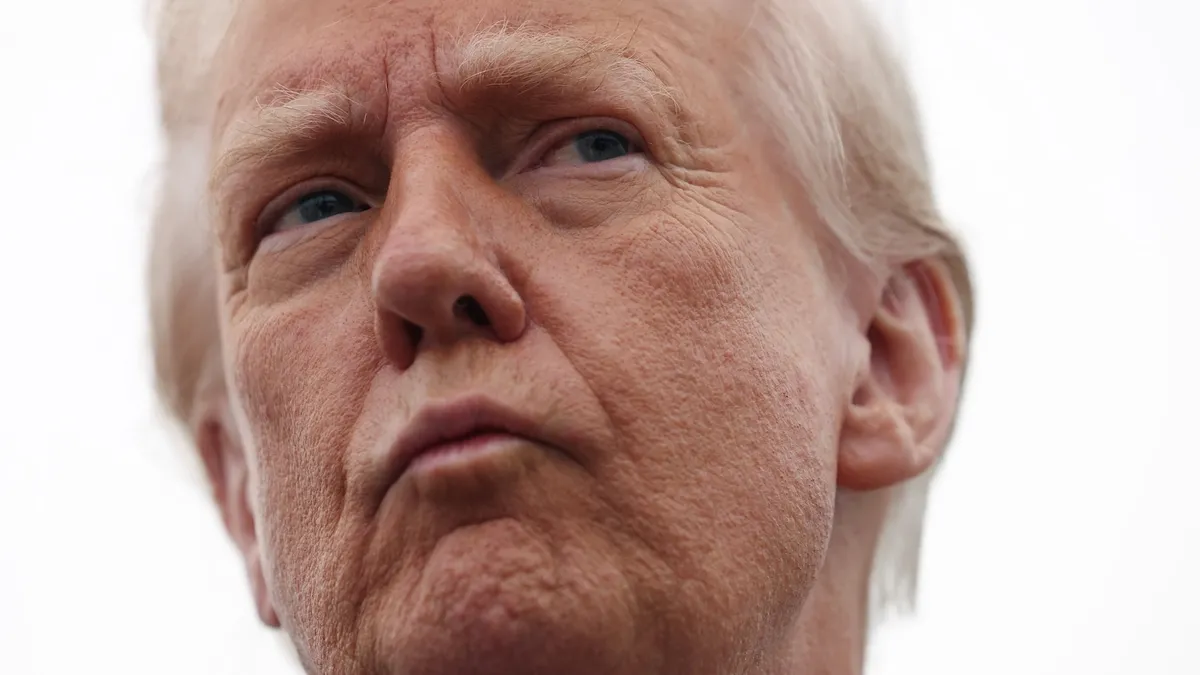
Former President Donald Trump has recently taken a striking stance against one of President Joe Biden's last acts in office—issuing preemptive pardons for members of the House Jan. 6 select committee. In a late-night social media post, Trump made unsubstantiated claims suggesting that Biden utilized an autopen to sign the pardons, declaring them to be VOID, VACANT, and OF NO FURTHER FORCE OR EFFECT.
Trump, who has emphasized retribution against his perceived political adversaries as a cornerstone of his 2024 campaign, asserted that the committee members should be aware that they remain subject to investigation at the highest levels, despite the absence of any findings of wrongdoing. However, legal experts told ABC News that Trump lacks the authority to overturn Biden's actions regarding these pardons.
The clemency power of a president is enshrined in Article II of the U.S. Constitution, providing a broad and virtually unlimited scope. As noted by Jeffrey Crouch, an assistant professor at American University and a specialist in presidential pardons, the only notable restrictions include that clemency can only apply to federal offenses and cannot interfere with Congressional impeachment powers.
A memo from 1929 by the solicitor general to the attorney general regarding pardons articulated that neither the Constitution nor any statute prescribes the method by which executive clemency should be exercised. It is solely up to the President to determine the practicalities of how such powers are recorded and evidenced, as stated in the memo.
This memo was referenced in a federal appeals court ruling last year, which affirmed that pardons do not necessarily need to be documented in writing. Furthermore, while autopens—mechanical devices that automatically add a signature to documents—have faced scrutiny, the Justice Department determined as recently as 2005 that their use is constitutional. This ruling permitted presidents to sign bills into law using autopens, a practice that has been employed by several past presidents, including Barack Obama, Lyndon B. Johnson, and John F. Kennedy.
If the use of autopens were deemed illegal, it could potentially invalidate numerous actions and regulations executed by presidents over the last few decades. Elaine Kamarck, a senior fellow at the Brookings Institution, dismissed Trump's argument as "ridiculous," emphasizing that there is nothing in the Constitution that mandates a pardon must be signed without the assistance of an autopen. She noted that this technology is a modern development, unavailable to earlier presidents.
Experts like Michael Gerhardt, a constitutional law scholar at the University of North Carolina, reiterated that Trump holds no authority to reverse a Biden pardon. Similarly, the next president would not have the power to overturn any pardons issued by Trump.
ABC News has reached out to Biden's team and the current White House to inquire about the usage of the autopen but has not received any comments. During a flight aboard Air Force One on Sunday, Trump was questioned about whether any executive action from Biden involving an autopen should be considered null. Trump replied that it would ultimately be up to a court to decide but maintained that he believes such actions to be null and void, suggesting that Biden may not have been aware of the autopen's use.
White House press secretary Karoline Leavitt also implied, without substantiation, that Biden was possibly unaware of the signature being applied to the pardons. During a Monday briefing, she asked if Biden's legal signature was utilized without his consent or knowledge.
Biden issued the last-minute pardons mere hours before Trump's inauguration and had previously indicated in media interviews that he was contemplating such actions to protect individuals he feared could be targeted by the incoming administration, including Liz Cheney and Anthony Fauci.
If Trump were to attempt to ignore or challenge Biden's pardons, it could set a precarious legal precedent. Experts caution that allowing a sitting president to reverse a predecessor's pardons could open a Pandora's box of legal challenges. Crouch suggests that a more prudent guideline would be to consider all pardons—regardless of their perceived merit—as final.
As the political landscape evolves, the implications of these pardons and the discussions surrounding them will likely continue to unfold, drawing attention to the complex interplay of presidential powers and the legal frameworks that govern them.